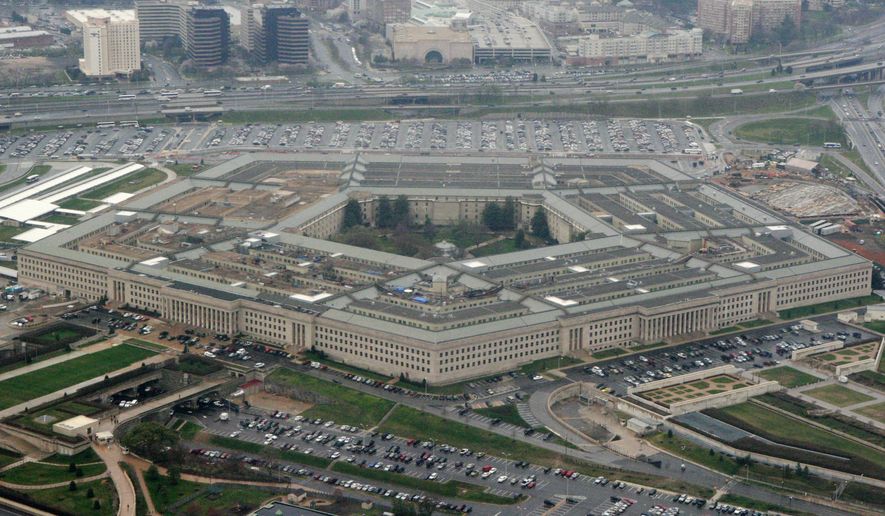The Pentagon has turned down an open records request by The Washington Times for copies of administration decisions in the disciplining of Adam S. Lovinger, the pro-Trump analyst who was suspended and stripped of his security clearance.
Mr. Lovinger has gone through two appeals, including a lengthy administration trial in December.
The judge found him guilty of sharing “sensitive” material and mishandling a document on an airplane trip.
In denying The Times’ request, the Pentagon’s Freedom of Information Division said in a Sept. 13 letter that it handed the request to the Washington Headquarters Services (WHS), which prosecuted Mr. Lovinger.
Chakeia Regina, who heads the WHS clearance appeals board, said a total of 48 pages “must be withheld in its entirety,” the letter reads.
The Pentagon said releasing the pages is prohibited because it would expose “communications protected by the deliberate process privileged” and “would constitute a clearly unwarranted invasion of personal privacy.”
The Pentagon is moving to terminate Mr. Lovinger’s employment. Meanwhile, the analyst has filed a whistleblower retaliation complaint with the Department of Defense inspector general.
Mr. Lovinger worked in the secretive Office of Net Assessment for Director James H. Baker. Mr. Lovinger complained internally that ONA was awarding sweetheart contracts for academic-type studies instead of researching authentic net assessments of future threats.
One contractor he complained about was Stefan Halper, a Washington national security figure who worked as a FBI informant against the Trump campaign.
Sean Bigley, Mr. Lovinger’s attorney, has met stiff resistance to his own open records request. One WHS reply redacted every single word in an email thread.
Judicial Watch, a conservative investigative nonprofit, filed a lawsuit. One of the gems it uncovered was a reference to an unknown Naval Criminal Investigative Service (NCIS) report.
Mr. Bigley filed an open-records request with NCIS. It produced its report that had cleared Mr. Lovinger of wrongdoing. Mr. Bigley said the WHS had ordered the analysis but never turned the report over to Mr. Lovinger for his trial in December.
The report, a copy of which was obtained by The Times, said NCIS investigators found no sensitive material on any of Mr. Lovinger’s devices. It also cleared him of leaking to the media. And it said he wasn’t a counterintelligence threat.
Mr. Bigley says the document that Mr. Lovinger supposedly mishandled was labeled “classification pending.”
After the 2016 election, Mr. Lovinger was granted a detail to the White House National Security Council to work for a president whose policies he supported. He stayed only a few months. Mr. Baker had initiated a security investigation and moved to strip him of his clearance, which happened.
As for Mr. Halper, the Defense Department IG examined ONA contracting methods and found a number of flaws.
For one, the WHS and ONA had awarded Mr. Halper $1 million in contracts based on his proposals. He said he would interview a number of prominent national security figures and visit various military institutions. The IG said it could find no evidence in his reports that he had talked to such people.
On a 2016 Russia-China study, the IG said: “ONA personnel could not provide us any evidence that Professor Halper visited any of these locations, established an advisory group, or met with any of the specific people listed in the statement of work.”
• Rowan Scarborough can be reached at rscarborough@washingtontimes.com.




Please read our comment policy before commenting.